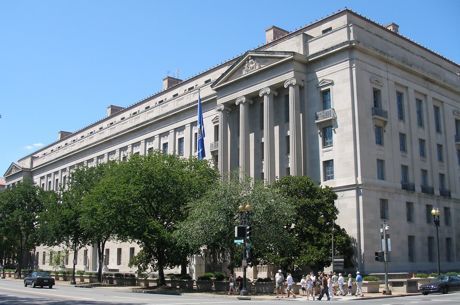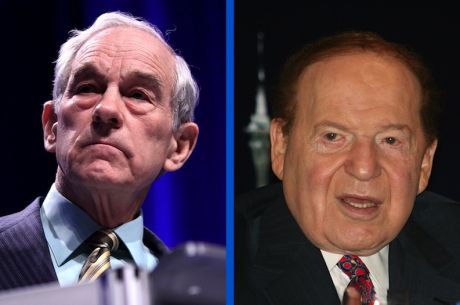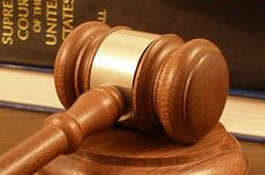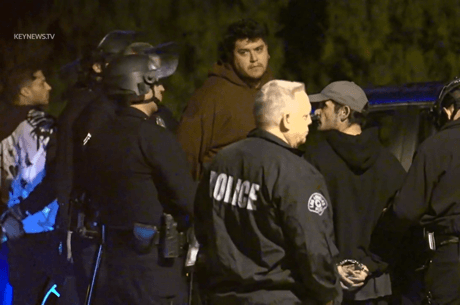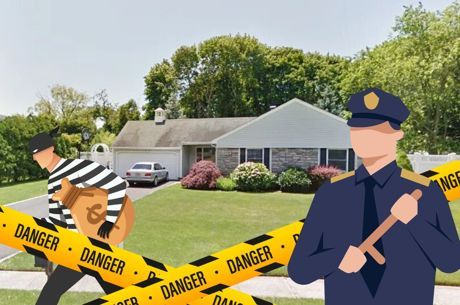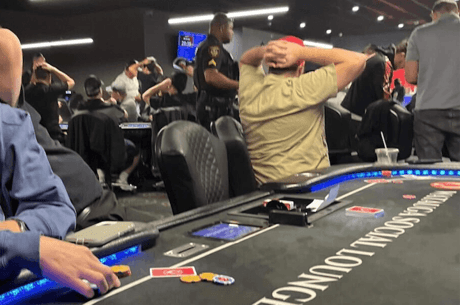The Justice Department Gets its Wires Crossed

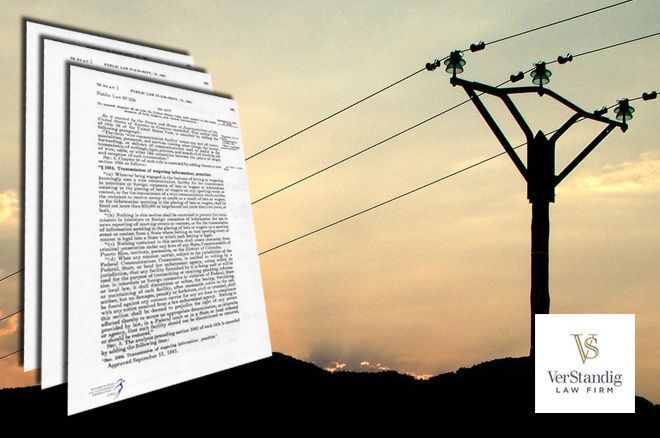
Table Of Contents
Maurice “Mac” VerStandig is the managing partner of the VerStandig Law Firm, LLC, and focuses his practice on representing poker players, advantage gamblers, and other industry professionals in all manner of legal situations. He can be reached at 301-444-4600 or [email protected].
With legal online gaming rapidly spreading in the United States and the poker world looking forward to a renaissance with an ever-growing – and increasingly fishy – pool of rec players signing online from their mothers’ basements, recent news about a Department of Justice memorandum reinterpreting the Wire Act has caused appreciable concern.
From Twitter threads to table talk, the ever-growing – and enormously exaggerated – worry is some variant of
- WSOP.com’s blended New Jersey and Nevada player pool being due for segregation;
- online poker sites facing imminent euthanization; or
- everyone with a legal online poker account facing arrest, conviction, and decades of solitary confinement in a concrete cell devoid of sunlight and playing cards.
The odds of any of these things happening are slimmer than flopping quads.
The odds of any of these things happening are slimmer than flopping quads. And while we should certainly not ignore the government’s new antagonistic slight to the gaming community, there is enormous import in understanding what has actually happened, what it really means, and why members of the poker world need not start voluntarily surrendering themselves at the nearest federal penitentiary anytime soon.
The Wire Act
As a starting point, the Wire Act is “is not a model of artful drafting” – and that is a direct quote from the new government opinion. Worse, even that is a generous assertion; the Wire Act is a hot mess of a statute that evolved from being merely weird and dizzying to now being weird, dizzying, and anachronistic.
In the early 1960s, John F. Kennedy was elected to the presidency and appointed his brother Robert to be the Attorney General of the United States. (Take a moment and process that. If you think the whole Jared and Ivanka thing is weird, they are just running around the West Wing; Kennedy looked around the country, surveyed the finest legal minds in the land, and then decided to pass all of them over and give his brother a job.) Robert F. Kennedy saw organized crime as a national scourge and believed (probably correctly) that the mob was making a significant amount of money having its members act as street-corner bookies. So he lobbied Congress to pass a federal law – in addition to all the already-existing state laws – banning sports gambling.
"It is quite evident that modern, organized, commercial gambling operations are so completely intertwined with the Nation's communications systems that denial of their use to the gambling fraternity would be a mortal blow to their operations."
—Robert F. Kennedy discussing how the Wire Act would affect organized crime (source)
Here’s where things get unintentionally screwy: Congress doesn’t have the authority to pass any law it wishes. For some esoteric constitutional reasons that are not worth getting into here, Congress’ authority to regulate crimes generally only extends to crimes being committed across state lines. And since, circa 1961, not a lot of bookies were taking action on a street corner in Kentucky and paying out winnings on a street corner in Tennessee, the only real way to prohibit the activity was to ban the use of telephones which go across state lines. So if a bookie in Trenton takes action on a street corner from a bettor in Trenton, only the State of New Jersey can bring charges; but if a bookie in Brooklyn takes a bet over the phone from a bettor in Atlantic City, the federal government can assert jurisdiction since a phone line has been used.
Now for the sick and completely unintentional twist: back in the day, people didn’t just communicate via telephone – they also sent telegrams and wires to one another. So Bobby Kennedy and Congress, rightfully, figured that the Wire Act shouldn’t just ban the use of telephone lines to place bets from one state into another state but, too, the use of “wires.” Never could they have imagined that those same “wires” would one day play host to a worldwide web, e-mails, and online poker games.
Government Interpretations
Here’s the thing about the US Code: it isn’t particularly well written. As it turns out, 535 elected representatives who make their way to Washington by shaking hands, kissing babies and riding parade floats on Memorial Day, are not the finest artisans of the English language. So the laws they pass often have some ambiguity or wiggle room. In fact, they almost always have some ambiguity or wiggle room. And, thus, it falls to other parts of the government – when not shut down – to figure out what a given statute means.
Never could they have imagined that those same “wires” would one day play host to a worldwide web, e-mails, and online poker games.
A lot of the interpretations you hear about on the news come in the form of regulations, where government agencies interpret – and extrapolate upon – laws concerning their jurisdictional terrain. Those regulations are enormously complex in nature, as they have to go through certain processes, and the Supreme Court has long said these regulations are entitled to some deferential respect if a dispute ends up in court.
But what the Department of Justice did here does not involve any regulations. Rather, the Department of Justice simply issued an opinion – as it is wont to do so from time to time – explaining how it views a criminal law. And this, on its face, is not at all a bad thing; having federal prosecutors tell the public how they perceive certain laws is actually rather helpful in understanding what things the Department of Justice is likely to prosecute and what things people can do without any serious worry about having their door knocked down by a caffeinated squad of men and women donning windbreakers at the crack of dawn.
In this case, back in 2011, the Department of Justice took a look at the Wire Act, in the context of all sorts of new online gaming (which, again, did not exist back when Bobby Kennedy was crusading in the 1960s), and concluded the law only applies to sports betting. The government issued a memorandum explaining its position, and the reasoning was fairly sound: since the Wire Act obsessively talks about “bets or wagers on any sporting event or contest” several times over, surely the Wire Act is only concerned with sporting events and contests. For the poker world, this was a relief since, despite an increasing amount of coverage on ESPN, poker is not really considered a sport.
Yet the Department of Justice is part of the executive branch, and thus under the control of whoever wins the presidency. So while President Obama and his crew of prosecutors may have seen something one way eight years ago, President Trump and his merry band of enforcers are entitled to a new view. This is the problem with relying on interpretations of laws, and not lobbying to have laws changed: interpretations are subject to human discretion, and the human doing the discerning changes every four or eight years.
I’ll keep the conspiracy theory rhetoric to a minimum since it does not much ultimately matter. But suffice it to posit Sheldon Adelson, proprietor of the Venetian and infamous foe of all manner of online gaming (with the possible exception of Minesweeper, provided it not be played for money), is a significant GOP donor and one of the people with President Trump’s ear. So somehow, even though for the first time in history this country’s executive branch is being helmed by a man who literally used to run casinos, the Department of Justice has come out with a new interpretation of the Wire Act saying it does not only apply to just sports betting but, rather, applies to all manner of wagering.
So What?
The ensuing panic is mostly born of a section of the Wire Act that is not really addressed in a meaningful way by the new government opinion. In short, there is an exception, built into the Wire Act, which makes clear the law does not apply to “bets or wagers on a sporting event or contest from a State or foreign country where betting on that sporting event or contest is legal into a State or foreign country in which such betting is legal.” In other words, you can use phones – or even the internet – to bet on sports contests, as long as you’re doing so in a state where it is legal and whoever you are calling, e-mailing, or communicating with is also in a state where it is legal.
The problem is that the exception specifically only applies to wagers “on a sporting event or contest.” So if the Wire Act applies to all gambling, and its exception only applies to sports betting, then the exception does not save other forms of gambling – like, say, online poker.
Reports of Online Poker’s Death are Greatly Exaggerated
Sure, this is not good. In fact, this is affirmatively bad for the gaming community. But there are two reasons people should not be freaking out just yet:
- the Department of Justice’s theory is, for want of a more eloquent term, really stupid; and
- pot is sort of legal.
First, with regard to the intellectual fealty of the opinion: the Wire Act is clearly an anti-sports betting law. The history of the law, the actual text of the law, and past enforcement of the law, all make clear it is meant to stop the mob from operating a network of bookies. There is no serious inference Bobby Kennedy had it out for stud or draw players (in an era before hold ‘em and Omaha were prevalent), and not one iota of the statute’s actual wording, when examined in the context of the statute itself, suggests otherwise.
I am relatively confident in surmising that the government’s new reading of the statute would be subject to a fierce challenge in court if ever used as the basis of a criminal charge.
This matters because courts are not at all obligated to buy into the Department of Justice’s opinion. In fact, unlike a regulation where they owe some deference to a government agency, in a criminal context they do not even owe federal prosecutors’ theories a serious analysis. And as someone who has worked with the Wire Act for years, advised any number of clients on Wire Act compliance, and acquired the dubious distinction of being an expert on this asinine law, I am relatively confident in surmising that the government’s new reading of the statute would be subject to a fierce challenge in court if ever used as the basis of a criminal charge.
Sure, there are no guarantees how a given judge or appellate panel would rule, and stranger things have certainly come from our independent judiciary, but if asked to handicap the prognosis of this Department of Justice opinion, I would set better odds for it failing the proverbial laugh test than for it being acceptingly adopted by a serious-minded federal judge.
There are other reasons this interpretation may struggle to survive, of a more academic (and, admittedly, boring) nature. But one in particular merits some attention: marijuana. Objectively and rather clearly, the federal government regards marijuana as a Schedule I controlled substance. Quite simply, it is a violation of federal law to grow marijuana, sell marijuana, smoke marijuana, or bake any sort of brownies that would not be welcome at a PTA meeting.
Still, numerous states – including Nevada – have “legalized” marijuana for recreational use, established a regime for its cultivation and sale, and regulated the places where it may be used by consumers. Even more states have done so in a medical context (though the legal indifference of myriad doctors, even in those states, does seem to have significantly blurred the line between “medical” and “recreational,” with it being ever-more-difficult for an average person to not surmise a stressful circumstance sufficient to gain entry into a dispensary draped in green).
There is no real question which set of laws actually control here: the Constitution says federal laws are supreme, and the list of lawyers prepared to articulately argue that state laws can trump federal laws is relatively short and replete with individuals who may have gotten a touch lucky on their respective bar examinations.
while it seems unlikely the Confederacy is about to form again in the name of an inalienable right to bluff the river, it seems equally far-fetched that this is the political hill upon which Donald Trump wishes to die.
Yet the federal government has never raided a marijuana growery or dispensary licensed by any of the individual states, not because it lacks the legal authority to do so but because such a confrontation would be a political firestorm of the highest order. The last time the United States got into a serious spat over states’ rights, a war literally broke out. And while it seems unlikely the Confederacy is about to form again in the name of an inalienable right to bluff the river, it seems equally far-fetched that this is the political hill upon which Donald Trump – or whoever his successor may be in two or six years – wishes to die.
So is it possible the Department of Justice is about to initiate a second Black Friday-style crackdown, this time focusing on legal online poker sites and not illicit offshore actors? Sure. But the first time I flopped quads, I lost to a straight flush, and I like to think I have better luck than the furloughed employees of our nation’s chief law enforcement agency.

